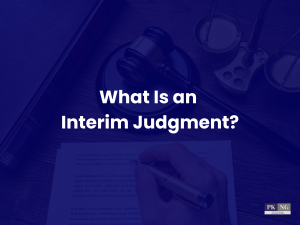
Ng Pui Khim, Senior Divorce Lawyer
Ms Ng Pui Khim is a female divorce lawyer with over 20 years of experience in handling divorces, division of matrimonial home and matrimonial assets, child custody disputes, maintenance for spouse and children. At many big law firms, the divorce file gets passed around trainee lawyers and newly-called lawyers. This often results in incompetent handling of the divorce case. Our divorce cases are personally handled by the senior lawyer, Ms Ng Pui Khim.
Accreditations & Appointments
- Accredited Associate Mediator, Singapore Mediation Centre
- Accredited Family Mediator, Singapore Mediation Centre (Family Mediation Scheme)
- Accredited Collaborative Family Practice Panel Lawyer, Singapore Mediation Centre
- Associate Mediator, Panel of Mediators under Singapore Law Society Mediation Scheme

Expertise Across All Divorce-related Concerns
-
Divorce
File divorce on simplified track or normal track.
-
Child Maintenance
Apply maintenance for your child from the other parent, if he or she neglects or refuses to provide your child with reasonable maintenance.
-
Spousal Maintenance
Apply for maintenance for yourself from your husband if he neglects or refuses to provide you with reasonable maintenance.
-
Custody, Care and Control of Children, and Access
Claim for custody, care and control or access of the child if your spouse and you do not have an agreed care arrangement with for the child upon divorce.
-
Division of Matrimonial Assets
Claim for a fair share of the matrimonial home and matrimonial assets upon divorce.
-
Variation of existing maintenance orders
Apply for a reduction or increase of monthly maintenance in existing Order of Court when there are material changes in circumstances such as when income has reduced or expenses have increased after the divorce.
-
Variation of existing child custody orders
Apply for a variation of existing child care and control orders where there has been material change in circumstances.
-
Family Mediation
Provide private family mediation services at affordable rates. During such mediation sessions, the family mediator, as a neutral third party, assists the husband and wife to arrive at a voluntary and amicable settlement on divorce and other related issues such as division of matrimonial home and assets, child custody and maintenance.
-
Separation Agreement
Provide a separation agreement to be signed by the Husband and Wife so as to prepare for an agreed and trouble-free divorce after 3 years of separation.
-
Nullity Of Marriage
Apply to the Court for a nullity of marriage. After the Court declares the marriage as null and void, the party’s marital status is a single and not a “divorcee”.
DIVORCE SERVICES ENQUIRY FORM / GET NON OBLIGATORY QUOTE
FAQs About Divorce in Singapore
Clients We Served












